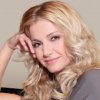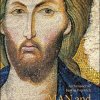A great man is one who collects knowledge the way a bee collects honey and uses it to help people overcome the difficulties they endure - hunger, ignorance and disease!
- Nikola Tesla
Remember, remember always, that all of us, and you and I especially, are descended from immigrants and revolutionists.
- Franklin Roosevelt
While their territory has been devastated and their homes despoiled, the spirit of the Serbian people has not been broken.
- Woodrow Wilson
Latest Articles
- Crafting Pišanice - Serbian Easter Eggs with Natural Dyes
- From Nicaea to Today: The Enduring Legacy of Synodality and Unity in the Church
- The Role of the Deacons in the Church
- The Circle of Serbian Sisters
- Vinka Ellesin
- Богородица као екстатично биће
- Bishop Maxim's Homily During the Assembly of Bishops XII Opening Liturgy
- Leon Joseph Lysaght Jr.
- Olga Gradojevich
People Directory
Marina Arsenijević
Marina Arsenijevic (arson-nee-vitch) is the international award-winning pianist and composer, star of the Emmy-nominated Public Television program, “Marina at West Point: Unity through Diversity” which has been broadcast to more than 160 Million viewers with over 350 airings by PBS Stations all across the country. Marina created the program and performed with the 120 member joint ensemble of the West Point Band and West Point Cadet Glee Club. The Concert was recorded LIVE at West Point’s historic Eisenhower Hall and will be broadcast all across the country through 2014. . Read more ...Publishing
Man and the God-Man
by Archimandrite Justin Popovich
"Father Justin Popovich, pan-orthodox witness to the God-revealed and Christ-given Eternal Truth, whose testimony can be even seen within this collection of his articles - that "the mystery of Truth is not in material things, not in ideas, not in symbols, but in Personhood, namely the Theanthropic Person of the Lord Christ, Who said: I am the Truth (John 14:6), Truth perfect, never diminished, always one and the same in its complete fullness - yesterday, today, and forever (Heb.13:8)."
The treasure to be found in this anthology of neopatristic syntheses consists of: "Perfect God and perfect man" - Nativity Epistle, where Fr Justin boldly exclaim that "man is only a true man when he is completely united with God, only and solely in God is man a man, true man, perfect man, a man in whom all the fullness of Godhead lives."; "The God-man" - The foundation of the Truth of Orthodoxy - Ava Justinian language of love in Christ-centered reflections of Truth; "The Supreme Value and Infallible Criterion"- contemporary philosophical reflections on visible and invisible realities; "Sentenced to Immortality" - a homily on the Resurrection or Our Lord Jesus Christ; "Humanistic and Theanthropic Culture"-criticism of European anti-Christian culture; "Humanistic and Theanthropic Education" - indicative pondering of consequences of education without God.. ; "The Theory of Knowledge of Saint Isaac the Syrian" - Faith, prayer, love, humility, grace and freedom, the purification of the intellect, mystery of knowledge; "A Deer in a Lost Paradise" - Ava's renowned poetic essay, a confession, and deepest longing for all-sweetest Jesus...
Latest US News
- Волт Богданић: Американац српског порекла добитник три Пулицерове награде за истраживачко новинарство
- The American Srbobran - Building a Partnership with the Library of Congress and Institutions in Serbia
- „Американски Србобран“ унапређује сарадњу са Конгресном библиотеком у Вашингтону и институцијама у Србији
- Преминуо чувени амерички песник српског порекла Чарлс Симић
- Јован Дучић међу великанима у кливлендској башти
- Србија, Африка, Америка и Канада славе дан Теслиног рођења
- Документарац Немање Станковића приказан у Холивуду
- Tesla Rhapsody
- Saved by Beauty: Dostoevsky in New York
- Izložba likovnih radova o Dostojevskom
- Steve Popovich - the man who discovered Meat Loaf
- Odlazak čoveka koji je mnogo uradio za očuvanje sećanja na lik i delo Nikole Tesle
- Naš otac Balkanac za Ruse je smislio bijelu Coca-Colu
- Neverovatan poduhvat srpske pravoslavne zajednice u Americi
- Prva Srpkinja u finalu najveće evropske nagrade za pronalazače
Latest Serbia News
- На Станфорд листи 15 крагујевачких научника
- Naše postojanje skriva mračne i svetle strane, i veliko je umeće prepoznati ih i razlučiti
- Српска застава је најлепша на свету – на основу резултата анкете милион људи
- Недеља америчке културе
- Preminuo pisac Aleksandar Petrov
- Spomenik Branku Pešiću radiće srpski vajar iz Los Anđelesa
- Metropolitan Amfilohije buried in the Cathedral church in Podgorica
- Memorial prayer rite for Metropolitan Amfilohije in the Cetinje Monastery
- На данашњи дан рођен је Михајло Идворски Пупин
- Алекса је стигао до Принстона, али Математичкој гимназији се радо враћа
- Каубој православац и 40 Американаца посетили Косово
- Архив Војводине: Сведочанства времена у спомен на херојске претке
- Премијера „Теслиног народа“ на Коларцу
- Када се велики умови играју науком о подацима
- Američka vojska donirala je vrednu opremu klinici u Nišu



